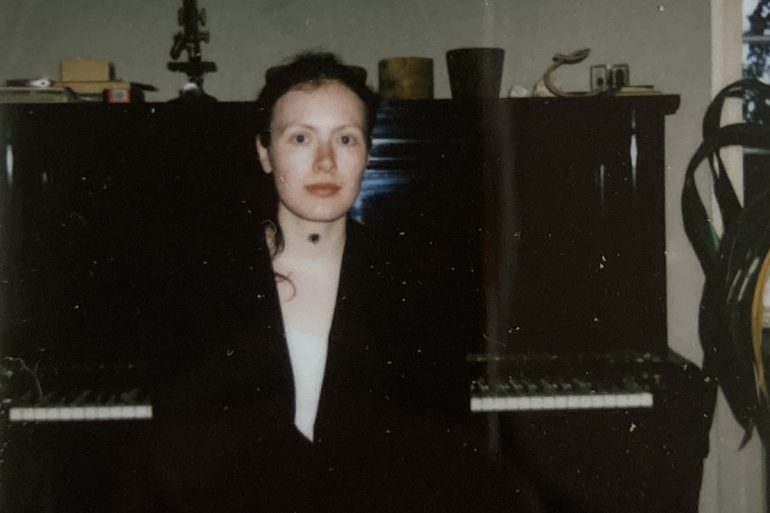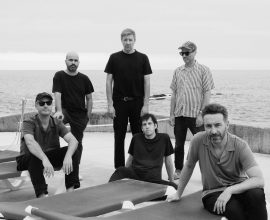Interview with the artist Rosa Anschütz about her new album “Sabbatical”
From childhood moments at the piano to crafting emotionally charged soundscapes that blend haunting vocals with spoken word, Rosa Anschütz’s journey has been one of deep introspection, creative independence, and fearless expression. Her new album Sabbatical, the first to be released internationally outside of Germany, arrives at a moment when she feels more grounded than ever — a stage where music no longer serves only as refuge, but as declaration.
By Sandra Pinto
In this intimate conversation, Rosa reflects on the evolution of her sound, the emotional landscapes behind her songwriting, the cinematic language of her compositions, and the liberating process of working with a label that truly sees the artist. With echoes of Nico, Cat Power, and Björk in both tone and intensity, Sabbatical unfolds like a diary — prophetic, poetic, and disarmingly raw.
Can you tell us how you first got started in music? What were some key moments that shaped your early career?
Literal keys (smile). The ones from the piano in the house I grew up in. That was my first instrument and I used it intuitively. I would quickly entertain everyone daily also when we had friends over visiting. I continued some small band projects but I was never highlighted, even silenced, that brought me to want to be my own band. I think that was the most important moment for me, to experience my independence so I can use this medium to express myself.
Looking back, what motivated you to pursue music professionally, especially in the electronic underground scene?
It had been always a portal to my feelings, things impossible to only articulate. Music carries it all, brings it all together. The electronic part came very much through the program I was using which is Ableton, where you choose from all kinds of instruments that I used but didn’t have physically. But I always came from a band background, rock, even big band and orchestra. I am glad I came back to those bridges through my new album Sabbatical.
Sabbatical is your first international release outside of Germany. How do you feel about this new stage in your career?
I believe in it to happen at a very great stage of my life. I am a more solid, content person. As much as I was nervous about this release, now that the album is released I feel that I am able to hold myself. It’s just nice to assume maybe that this solidness is seen and heard now by a few more people.
Your album blends haunting melodic vocals with spoken-word poetry, creating a unique atmosphere. How would you describe the evolution of your sound on this record?
It had a more cinematic approach. I wanted to create worlds, environments for some tracks to enhance the possibilities of the spoken word mostly.
The album has a raw, intimate, almost cinematic sound. What led you to this more minimalist and experimental style?
Yes this approach is also influenced by having worked as a composer for my two first scores. The movie score work was a pleasure for me, it meant I was able to just sit in my studio and make music all day. I loved the synchronicity of both and always wrote music that way, with a visual image in my head and ears.
The lyrics on Sabbatical are described as both prophetic and personal. Where do you draw inspiration for these deep themes?
My life (smile) also I listen to a lot of music. The interlude burlap and the connected track Sun Tavern are inspired by the genre of the murder ballad. I think of the lyrics not only as a written form, but also their performance very much decides the function, the understanding. It’s almost like acting.
Your work has been compared to artists like Cat Power, Nico, and Björk. Do you feel a direct influence from any of these artists in your music?
Nico I feel drawn to, mostly through endurance as a performer though she must have been in deep pain. Reading one of her biographies was one of the saddest but also most inspiring story I have encountered of an artist. I don’t know any way to glorify struggle, but the pain that we encounter makes us better writers, if we know how to make use of it for us.
How was the experience working with Heartworm Press, a label that also represents iconic figures in experimental music and art?
I mean it happened all. So mutually interested in each other that I never doubted the process. I was given all the creative freedom based on their trust in me, I never had that and I know how much to appreciate it. In the end that’s what I think you wish for as an artist, to feel truly seen by someone and here I did.
Did isolation or any recent personal experiences impact the creation of this album?
My past 10 years were dedicated to this Album, any tidal or wave had impacted it.
What do you hope listeners take away or feel when they experience Sabbatical?
To find themselves as I can sometimes find myself in the music of others. Feel heard, understood and seen. Thank you





